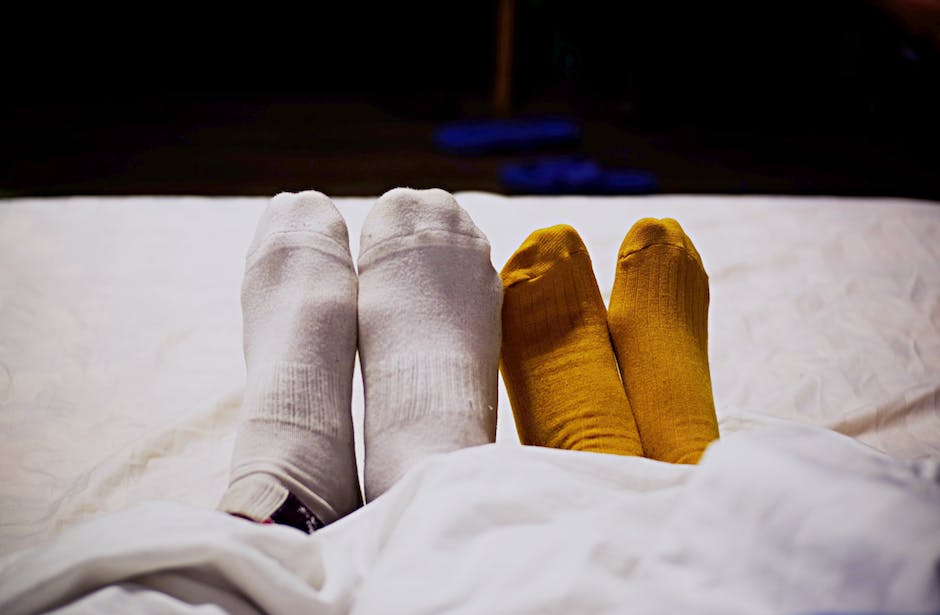The Pros and Cons of Wearing Socks to Bed
Should You Keep Your Feet Covered at Night?
The debate on whether wearing socks to bed is beneficial or detrimental to one's sleep and health has been ongoing for years. Some people swear by the comfort and warmth that comes with keeping their feet covered, while others find it uncomfortable and restrictive. Let's explore the potential advantages and disadvantages of wearing socks to bed to help you make an informed decision about your bedtime attire.
For many, the decision to wear socks to bed isn't just about warmth; it's also related to sleep quality, circulation, and overall comfort. Understanding the potential benefits and drawbacks can provide valuable insight into whether this nighttime habit is a good fit for you.
Pros
While some may dismiss the idea of wearing socks to bed, there are actually several potential benefits associated with this practice. From improved sleep quality to better circulation, here are some advantages to consider:
Improved Sleep Quality
Wearing socks to bed can help improve sleep quality by keeping your feet warm. According to the National Sleep Foundation, warm feet can help dilate blood vessels and signal to the brain that it's time to sleep. This can contribute to falling asleep faster and experiencing deeper, more restful sleep.
Better Blood Circulation
For those with poor circulation or conditions like Raynaud's disease, wearing socks to bed can promote better blood flow to the extremities. This can prevent discomfort and numbness often associated with cold feet, allowing for a more comfortable night's rest.
Warmth and Comfort
One of the most cited reasons for wearing socks to bed is the simple comfort and warmth they provide. Keeping your feet warm can help relax the body and alleviate any tension, leading to a more tranquil and cozy sleeping experience.
Reduced Risk of Raynaud's Attacks
Individuals with Raynaud's disease, which causes restricted blood flow to certain parts of the body—usually the fingers and toes—may benefit from wearing socks to bed. Doing so can help reduce the frequency and severity of Raynaud's attacks, providing relief for those living with this condition.
Moisturized Feet
Wearing socks to bed after applying foot cream can help lock in moisture and promote softer, smoother feet. This can be particularly beneficial during dry, winter months or for individuals prone to dry skin on their feet.
Reduced Dry and Cracked Skin
Wearing socks to bed can help retain the moisture in your feet, preventing them from drying out and developing cracks. This can be especially beneficial for individuals living in dry climates or those prone to dry skin conditions.
Improved Symptom Management for Restless Legs Syndrome
For individuals experiencing restless legs syndrome (RLS), wearing socks to bed may help provide a gentle, comforting pressure that can alleviate the discomfort and urge to move the legs, thereby improving sleep quality and overall rest.
Missing a pro?
Let us know which pro you are missing!
Cons
While there are potential benefits to wearing socks to bed, it's important to consider the drawbacks as well. Here are some aspects to be mindful of when deciding whether to keep your feet covered at night:
Overheating and Sweatiness
For some individuals, wearing socks to bed can lead to overheating and excessive sweating. This can be uncomfortable and may disrupt sleep, especially if the feet become excessively hot and damp during the night.
Restriction of Movement
Wearing socks while sleeping can make some people feel restricted in their movements. This can be particularly bothersome for those who prefer the freedom of movement and the sensation of being unencumbered by tight or restrictive clothing.
Risk of Infections and Fungal Growth
Without proper ventilation, wearing socks to bed can create a warm, moist environment that's conducive to fungal growth and bacterial infections. This is especially true if the socks are not clean or if the feet are not thoroughly dry before donning the socks.
Discomfort for Certain Individuals
While some people find comfort in wearing socks to bed, others may find it uncomfortable and disruptive to their sleep. The sensation of having fabric on their feet during the night may be distracting and detract from the overall sleep experience.
Potential for Allergic Reactions
Wearing socks to bed may lead to allergic reactions for some individuals, especially if they are allergic to certain materials or detergents present in the socks. This can result in irritation, itchiness, or rash development on the feet or lower legs.
Risk of Decreased Circulation in Certain Conditions
In some medical conditions, such as peripheral artery disease (PAD), wearing socks to bed may further restrict blood flow to the feet, leading to potential complications. It's important for individuals with such conditions to consult a healthcare professional before regularly sleeping with socks on.
Missing a con?
Let us know which con you are missing!
Conclusion
Ultimately, the decision to wear socks to bed is a personal one that depends on individual preferences and needs. While there are potential advantages, including improved sleep quality and better circulation, it's important to consider the drawbacks such as overheating and the risk of infections. Experimenting with different sleep attire and habits can help determine what works best for each person's unique comfort and health needs.
What do you think?
Do you think the pros outweigh the cons?




